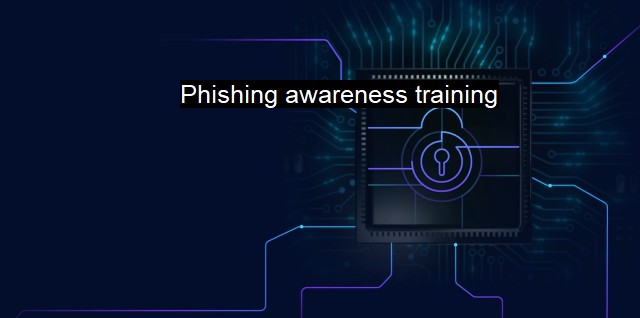What is Phishing awareness training?
The Growing Threat of Phishing: Protecting Personal & Org-wide Data with Awareness Training
Phishing awareness training revolves around the effective practices of teaching individuals to anticipate, pinpoint, and handle potential phishing attempts they might come across in their day-to-day digital interactions. In our evolving digital landscape, phishing scams are more prevalent, complex, and damaging than ever. Predominantly through email but also harnessing other mediums like SMS or sham websites, cybercrooks engage phishing to dupe victims into releasing confidential data. This data could pertain to person identifiers, login credentials, bank accounting details, or other sensitive security information. Consequently, there is an escalating need for comprehensive protection mechanisms, encompassing both technological safeguards like antivirus solutions and human-centric initiatives like phishing awareness training.Phishing awareness training primarily falls with a subject concerned with safeguarding computers, networks, automated systems, and data from digital attacks, unauthorized access, damage, or theft. Awareness training concentrates on the human aspect of the cybersecurity equation. Regardless of how advanced or sophisticated a technical system may be, vulnerabilities arise from personal miens like inconsistency, distraction, unpredictability, or lack of education about cyber threats.
Traditionally, antivirus software represented the main defense mechanism against digital threats, recognizing and eliminating malicious software, typically inclusive of phishing attempts. with the craftiness and complexity of modern phishing scams, the trick may employ legitimate websites, a threat with antivirus programs unable to detect. Thus, this underlines the crucial place of phishing awareness training to supplement antivirus systems.
Phishing awareness training involves diverse components to engage, inform, and test individuals on their recognition and resistance to phishing scams. Usually, it launches into an overview of what phishing is, its diverse types, thus contributing to risk awareness. Regular types of phishing attacks embody generic phishing (where myriads of random individuals are targeted), spear phishing (when particular individuals or organizations are targeted), whaling (where highly positioned individuals like executives are targeted), and clone phishing (imitating a legitimate message with revised links).
For an effective phishing awareness training program, the training digs into the motives cyber offenders might possess, implicating social engineering schemes they may employ to manipulate users into exposing confidential data. Recognizing these schemes and tactical motives allow individuals to be on guard against suspicious digital interactions, requests or any deceiving vocations, deriving from sources pretending legitimacy.
Evidential elements should be covered in these programs such as scrutinizing email addresses and embedded hyperlinks, observing spelling or grammatical errors frequent in phishing schemes, or understanding requests for sensitive data or instructing an immediate call-to-action. Phishing awareness training should also explain how phishing impersonalizes reputable organizations, convincing users to input their details.
Remarkably, the majority of current awareness programs rationalize the creation of mock phishing tests. Participants are subjected to simulated phishing ventures, allowing them to leverage their earned knowledge, correlate theory with practice, notice patterns, and develop an innate sense of vigilance. With each test, confidence in recognizing and being able to react appropriately to a phishing attempt amplifies.
Yet, it's not enduring that achievable threats will be detected. Therefore, an essential segment of training should revolve around the appropriate actions to undertake in such scenarios, escalating the incident to the assigned authority and minimizing the impact of the breach.
By integrating phishing awareness training with antivirus and other technology-centered security solutions, organizations can empower their employees to become an indispensable line of defense. Presently, this dual-track approach symbolizes an effective hybrid model, coupling technological innovation with human intuitiveness to generate additional layers of digital protection.
Phishing awareness training equips users with pertinent knowledge and tools that fortify day-to-day cybersecurity practices. It fosters an overall awareness to prevent digital threats, assisting antivirus systems to defend organizations’ data integrity credentiality. When individuals become aware, responsive, and proactive, our efficacy in handholding technology to combat ubiquitous phishing threats magnifies, making digital spaces steadily more secure.

Phishing awareness training FAQs
What is phishing awareness training?
Phishing awareness training is a cybersecurity program that educates individuals and organizations on identifying and preventing phishing attacks, which are a type of cyberattack aimed at stealing sensitive information such as login credentials, financial data, or personal information.Why is phishing awareness training important?
Phishing attacks are the most common form of cyberattacks and can lead to significant financial losses, reputational damage, and identity theft. Phishing awareness training can help individuals and organizations to recognize and avoid phishing attacks and protect themselves and their sensitive information.What does phishing awareness training cover?
Phishing awareness training covers a wide range of topics, including identifying phishing emails, recognizing suspicious links and attachments, understanding the anatomy of a phishing attack, reporting phishing attempts, and implementing security best practices to prevent phishing attacks. The training may also include simulations and practical exercises to simulate real-world phishing scenarios.Who can benefit from phishing awareness training?
Anyone who uses the internet and has access to email or other online accounts can benefit from phishing awareness training, including employees, contractors, students, and individuals. Organizations of all sizes can also benefit from phishing awareness training to protect their assets, data, and reputation from cyber threats.| | A | | | B | | | C | | | D | | | E | | | F | | | G | | | H | | | I | | | J | | | K | | | L | | | M | |
| | N | | | O | | | P | | | Q | | | R | | | S | | | T | | | U | | | V | | | W | | | X | | | Y | | | Z | |
| | 1 | | | 2 | | | 3 | | | 4 | | | 7 | | | 8 | | |||||||